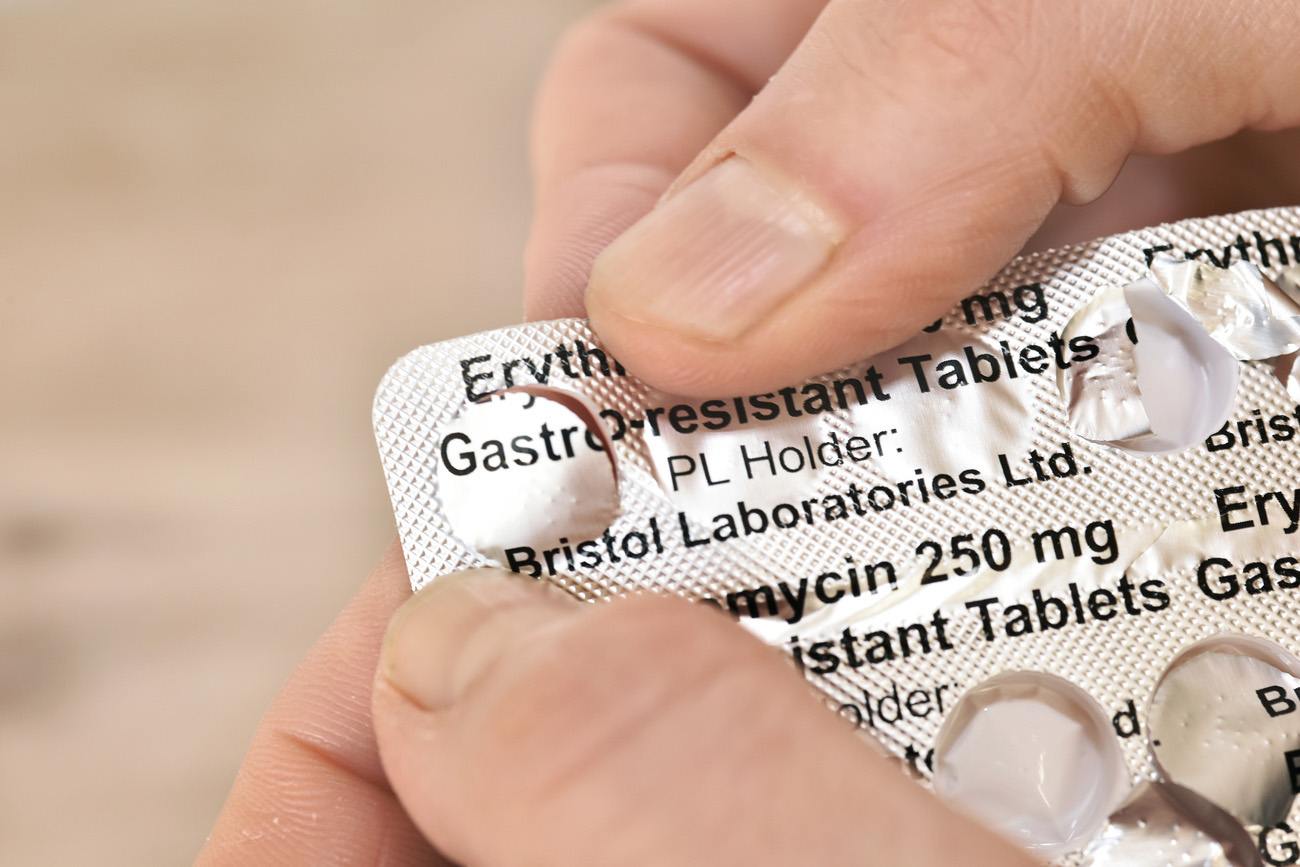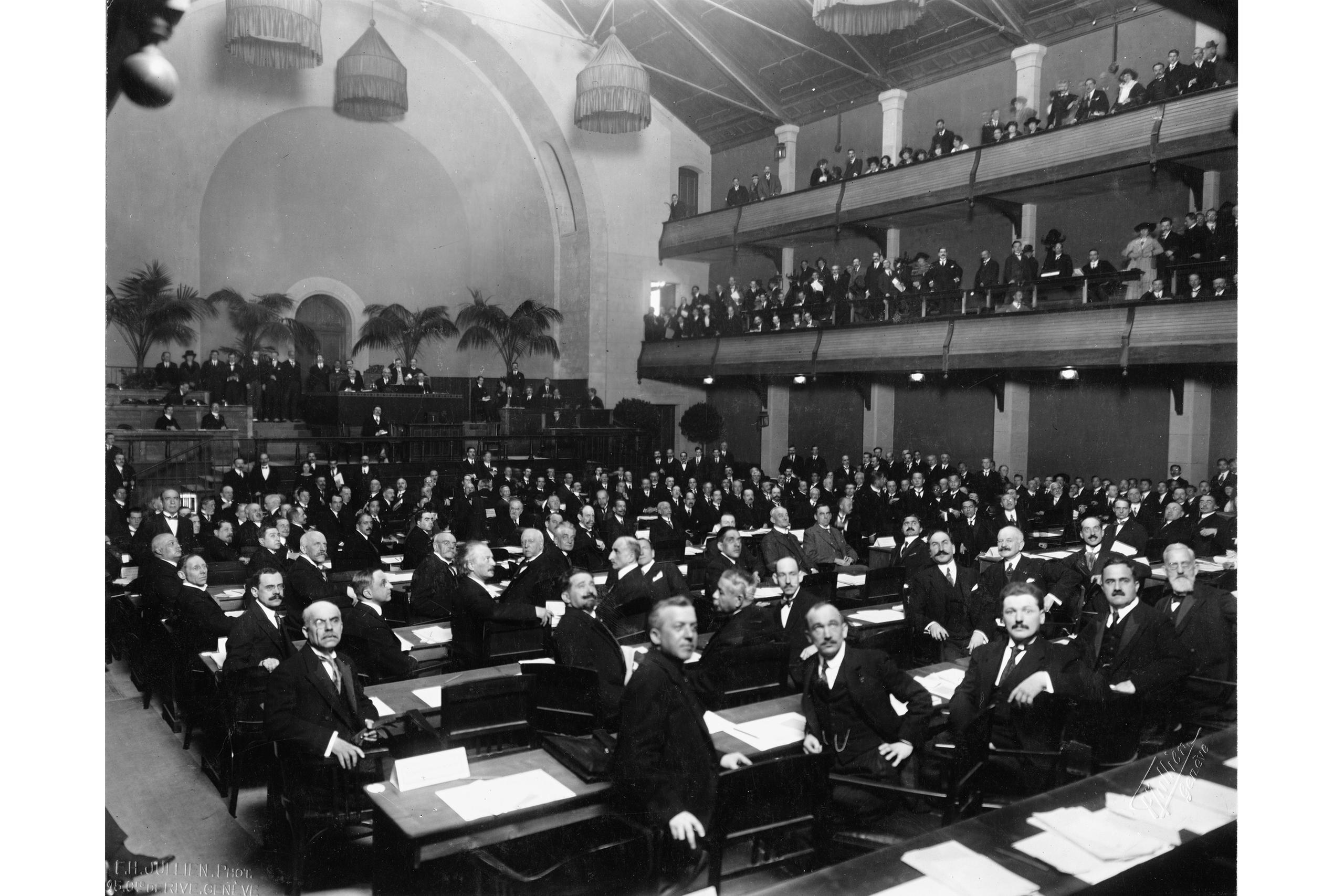
Is the amount of chemicals in your toothpaste decided in Geneva?

Geneva often makes the headlines as the setting for peace talks. Should it also take credit and be recognised for our small personal victories in the daily battle to prevent tooth decay?
“All the international organisations in Geneva are doing work that has a direct impact on all of us. We don’t even pay attention to it anymore. For example, when you brush your teeth, the percentage of chemicals in your toothpaste comes from standards adopted in Geneva,” Michael Moller, the former head of the United Nations in the Swiss city, told the Tribune de Genève newspaper earlier this year.
Is he right? Is the amount of chemicals in your toothpaste agreed in Geneva? The answer is not so straightforward, as we will see.
The International Standardization Organization (ISO),External link whose secretariat has been based in Geneva since 1949, has developed over 22,000 voluntary international standards covering every sector imaginable – from MP3s to milk bottles.
The independent, non-governmental international organization has also created a standard for toothpaste. ISO 11609:2017External link, Dentistry – Dentifrices – Requirements, test methods and marking, was published in 2017. This followed 18 months of work by an ISO technical committee made up of officials from governments, industry, NGOs and other stakeholders from 12 countries, including the Swiss Association for Normalization (SNV).External link
The standard sets out requirements for the physical and chemical properties of toothpastes, such as the maximum fluoride content in a single tube (300mg) or heavy metal content (20mg/kg). It includes methods for assessing and testing toothpastes for pH, abrasivity, stability and fluoride concentrations, as well as labelling and packaging guidelines. ISO charges CHF118 ($119) to download the 23-page document.
Application?
The Geneva-based organisation oversees and coordinates what goes into your toothpaste. But to what extent do individual countries and firms apply this global norm? This remains unclear.
“ISO publishes voluntary international standards, so there is no obligation to implement the standard,” explains ISO communication specialist Sandrine Tranchard.
Clifton CareyExternal link, a professor at the University of Colorado School of Dental Medicine who oversaw the ISO working group, says national adoption is for each country to decide. But he believes the standard is well-respected by researchers: “ISO 11609 has been referenced in more than 300 publications in the last four years.”
The ISO acknowledges it doesn’t have a complete overview of the specific countries or firms making use of its toothpaste norm. According to Tranchard, 13 member states say they have adopted the latest ISO toothpaste norm in their national standards, but “any company, manufacturer or laboratory in the world producing toothpaste can also use the standard”.
Swiss adoption
In Switzerland, ISO 11609:2017 has not been written into law or the regulations covering cosmetic products, which include toothpastes, and is thus not legally binding.
But it is intended as an aid to industry, explains Nathalie Rochat, spokesperson for the Federal Food Safety and Veterinary OfficeExternal link.
“Many ISO standards have been developed for cosmetic products and help the industry via analytical or microbiological advice, but do not feature in Swiss laws,” she points out. In other words, the standard has not been transcribed directly into legislation.
Bernard Cloëtta, director general of the Swiss Cosmetic and Detergent AssociationExternal link explained that when manufacturing toothpaste for sale in Switzerland, companies must ensure their production complies with “good manufacturing guidelines”. There are several technical standards and ways of doing this to prove that the products comply with the law and “ISO 11609:2017 is “one of the most important”, sometimes requested by retailers, he added.
Ultimately, toothpaste production and the standard are regulated within Swiss cosmetic legislation, which is identical to that in the European Union – EU Cosmetic Decree 1223/2009External link, he noted.
Switzerland must follow what is done in the rest of Europe. Swiss legislation on cosmetics is “almost completely harmonized with European law in order to reduce trade barriers as much as possible”, Rochat pointed out.
In addition to the work in Geneva, the ISO standard was developed in parallel at European level within the European Committee for StandardizationExternal link (CEN). All 34 membersExternal link – the national standardization bodies of the 28 European Union countries, the Republic of North Macedonia, Serbia and Turkey, plus the countries of the European Free Trade Association (Iceland, Norway and Switzerland) – work towards implementing European standards as their own.
The verdict: Yes, but…
Is it true that the percentage of chemicals in your toothpaste comes from standards adopted in Geneva? Moller’s claim appears to be true. The ISO provides almost universal coverage via its 164 members. Yet as the body’s standards are voluntary, it is extremely hard to verify exactly how far a country or manufacturer adheres to this specific norm and its requirements. In Switzerland, the standard is not written into Swiss cosmetic legislation – which is harmonised with the EU – but acts as an important reference for industry during the production of toothpaste.

In compliance with the JTI standards
More: SWI swissinfo.ch certified by the Journalism Trust Initiative









































You can find an overview of ongoing debates with our journalists here . Please join us!
If you want to start a conversation about a topic raised in this article or want to report factual errors, email us at english@swissinfo.ch.